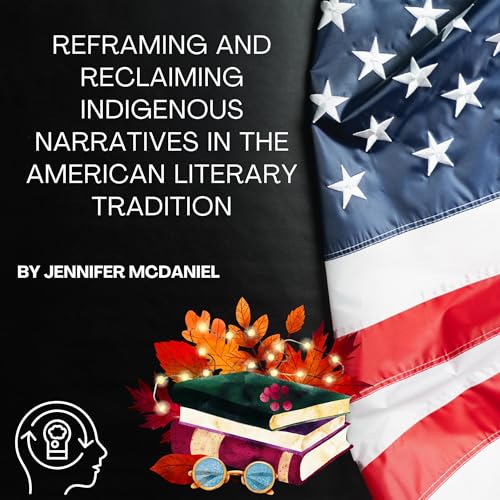
Reframing and Reclaiming Indigenous Narratives in the American Literary Tradition
Falha ao colocar no Carrinho.
Falha ao adicionar à Lista de Desejos.
Falha ao remover da Lista de Desejos
Falha ao adicionar à Biblioteca
Falha ao seguir podcast
Falha ao parar de seguir podcast
Assine e ganhe 30% de desconto neste título
Compre agora por R$ 17,99
-
Narrado por:
-
Molly A Papier
Sobre este título
In America’s history of settler colonialism, the “master narrative” framing inscribed into law, literature, and media has functioned as a powerful tool of control and conquest. America’s early history is not merely a record of events but a carefully constructed story — a dominant, overarching framework shaped by those in power to justify their actions and maintain control.
Moreover, presenting settler actions as inevitable, morally justified, or necessary for the advancement of “civilization” allows the master narrative to distort and erase Indigenous perspectives. Within this framework, colonization is framed as a heroic mission, with settlers cast as bringers of progress and enlightenment, while Indigenous peoples are “othered” as obstacles to this mission, either through their perceived “savagery” or resistance to violent colonial forces.
Crucially, the master narrative portrays the violence perpetrated by white colonists against Indigenous communities as either unavoidable or benevolent efforts to subdue and assimilate Native peoples into colonial society under the guise of salvation. By controlling how America’s history is told, the master narrative legitimizes and normalizes the brutality inflicted upon Indigenous individuals, erasing the truth of colonial exploitation and genocide built within settler dominance. This framing conceals the true motives behind these actions: territorial expansion, resource exploitation, and the maintenance of settler dominance.
©2025 Jennifer McDaniel (P)2025 Jennifer McDaniel


